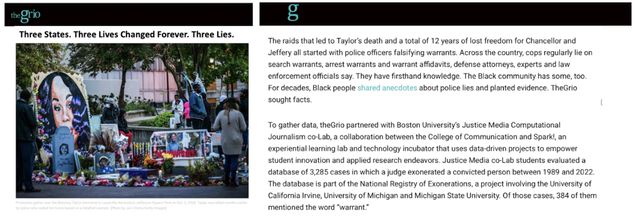Justice Media co-Lab Projects Newsroom
The New Bedford Light: Analysis: Can candidates reach the Hispanic and Latino community?
October 8, 2025
Excerpt from The New Bedford Light | By Colin Hogan | October 8, 2025 | Photo: Eleonora Bianchi
Preliminary election night in New Bedford is usually when the city’s inner circle of politicians and activists hobnob and obsess over esoteric turnout percentages. This Tuesday was on track for more of the same, as about 20 people gathered in City Hall for election results, representing the usual cadre of candidates, spouses, volunteers, and a smattering of reporters.
But then something strange happened: three challengers beat out an incumbent.
No incumbent among New Bedford’s at-large councilors has lost reelection in more than a decade. The only way new at-large candidates have won their seats is through the retirement of a sitting councilor
Shane Burgo is the only new at-large councilor within the last decade, winning an open seat in 2021. The other at-large seats have belonged to the incumbents for, in some cases, decades: Brian Gomes (more than 30 years); Linda Morad (20 years, and who is not seeking reelection this year); Naomi Carney (12 years); Ian Abreu (10 years).
So it was a surprise to the small assembly inside City Hall that three challengers — Devin Byrnes, James Roy and Jennifer Arruda — finished ahead of the incumbent Carney, former City Councilor Scott Lima, and current School Committee member Christopher Cotter, all of whom are known political entities in New Bedford.
The New Bedford Light: New Bedford’s growing Hispanic population lags in voter turnout. One in every four New Bedford residents is Hispanic, but none of the 11 city councilors are
August 11, 2025

Excerpt from The New Bedford Light | By Grace Ferguson, Tavishi Chattopadhyay and Jakob Moskowitz |August 11, 2025.
Photo: Jack Spillane / The New Bedford Light
The influence of New Bedford’s fastest-growing population is easy to spot.
You can find restaurants serving any tortilla-based dish you desire on Acushnet Avenue. More teachers and police officers in the city are speaking Spanish than ever before. The recent renovation of Dias Field into a soccer complex reflects how children’s interests have shifted from baseball to fútbol.
One place the changes haven’t reached: the City Council chamber. One in every four New Bedford residents is Hispanic, but none of the city’s 11 councilors are.
Hispanic residents turn out to vote at lower rates than the rest of the city, casting less than one in every 10 votes during recent general elections, according to a New Bedford Light analysis of voter data in collaboration with Boston University’s Spark! Justice Media co-lab.
In New Bedford, Hispanics are a young population with many recent immigrants, which means a smaller share of the city’s Hispanic population is eligible to vote compared to the city as a whole. While 65% of New Bedford residents are U.S. citizens over the age of 18, just 44% of the city’s Hispanics fall into that group.
GBH News: A State Agency That Issues Student Loans Has Sued Thousands of Borrowers

Excerpt from Politico and GBH News | By: Jenifer McKim | December 16, 2024 | Photo: Jenifer McKim
Laquaysia Anderson-Jenkins walked into the Boston Municipal Court in Roxbury on a recent fall day because a state agency was suing her over a $12,000 student loan.
She didn’t question the amount she owed. She’d fallen behind in payments after graduation in 2017, she says, challenged by gaps in work and other financial responsibilities.
Anderson-Jenkins just wanted to make things right, especially because her mother had co-signed the loan from the Massachusetts Educational Financing Authority. But even as she stood outside the courtroom, the 31-year-old mental health practitioner from Dedham said she wished she’d known before what she knows now: private loans offered by the state leave little room for mistakes.
“Their (payment) amounts are high. And if you miss one, they’re on attack mode,” the UMass Dartmouth graduate said. “You really want to get your degree and you feel like this is the only option, so you do it. And then after, you wish that you could have done more research to find grants and scholarships and things.”
Anderson-Jenkins is not the only one facing student debt regrets. The Massachusetts Educational Financing Authority has filed more than 3,300 lawsuits against borrowers in Massachusetts civil courts since 2015, and more than 1,300 of those in the past three years, according to data obtained by the GBH News Center for Investigative Reporting and analyzed by students from Boston University’s Faculty of Computing & Data Sciences’ SPARK! Program.
Data analysis was provided by students from Boston University’s Faculty of Computing & Data Sciences’ SPARK! Program. Students Benjamin Coleman, Caslow Chien, Kenji Wagner, Hitaishi Hitaishi and Evan Park contributed to this report; the team was led by students Kevin Wu and Jessica Tong.
MarketWatch: With Senate control at stake, these billionaires and groups have spent over $160 million on this one Montana race

Excerpt from MarketWatch | By: Katrina Scalise, Mohammed Abaherah, Daniel Lung and Dana Yim | November 4, 2024 | Photo courtesy of MarketWatch
The battle over a U.S. Senate seat in Montana has drawn record-breaking sums as political action committees funnel tens of millions of dollars into the closely watched contest.
Billionaires including Citadel CEO Kenneth Griffin are keeping a close eye on Montana and have poured an unprecedented amount of money into the state, hoping to tilt the fight to control the Senate, where Democrats currently have a 51-49 majority. Jon Tester’s is one of a few critical seats that could flip and produce a Republican Senate majority, potentially opening up a pathway for the passage of GOP-sponsored legislation if Donald Trump is elected president.
Republican aerospace entrepreneur and federal contractor Tim Sheehy is running to unseat three-term incumbent Tester, one of the few Democratic senators representing a a state Trump won in 2020. An average of polls aggregated by the New York Times shows Sheehy leading Tester by four percentage points — at 49%, compared with Tester’s 45%. Montana is expected to vote for Trump a third straight time, with Trump leading the Democratic nominee, Vice President Kamala Harris, by 17 points in the state, according to one recent poll.
ProPublica: Many Judges Choose Not to Recuse, Even With Their Families
Excerpt from ProPublica | By: Noah Pransky, Brooke Williams, and Andrew Botolino | July 16, 2024 | Photo courtesy of Getty Images
Co-published with ABC News
To produce this story, ProPublica partnered with the Justice Media Computational Journalism co-Lab, a collaboration between Boston University’s College of Communication and the Faculty of Computing & Data Sciences’ BU Spark! program. Contributing students included Emilia Wisniewski, Serena Ata, Amisha Kumar and Amanda Bang.
Soon after longtime New Orleans attorney Wendy Vitter became a federal judge in the Eastern District of Louisiana, she heard a lawsuit against the local government in Plaquemines Parish, a peninsular province encompassing the final 70 miles of the Mississippi River, between New Orleans and the Gulf of Mexico.
A group of paramedics had sued the parish, seeking compensation for unpaid overtime. Vitter oversaw a pair of jury trials in 2019 and 2021, both resulting in wins for the parish. But an appeals court later ruled Vitter had erred in judgment and overturned her final order. That paved the way for the paramedics to be awarded more than $500,000 in compensation, plus hundreds of thousands more for their attorneys.
Throughout those proceedings, Plaquemines Parish leaders had a paid ally on their side: the judge’s husband, U.S. Sen.-turned-lobbyist David Vitter.
But there was no way for the parties in the case to easily know this. Wendy Vitter never told the EMTs’ attorneys. And they couldn't have looked it up in any court records. While the law requires federal judges to report their spouses’ income on annual financial disclosures, Vitter listed her husband as a “self employed attorney” with the name of the payroll company, TriNet HR III, that cut his checks. In fact, he is a partner and lobbyist for powerhouse Washington firm Mercury Public Affairs.
The Emancipator: Climate change is exacerbating racial inequities
Originally published July 27, 2023 | The Emancipator



TheGrio: This is what it looks like when cops lie
Originally published March 13, 2023 | TheGrio

Darell Chancellor was at work in Detroit when he got a frightening call in November 2011. Police were in his mother’s house with a warrant conducting a raid. A year later, he started a minimum 14-year term in prison for drug possession.
In 2016, Houston officers secured a warrant to look for marijuana at Frederick Jeffery’s house. The officers reportedly found methamphetamine. A judge sentenced Jeffery to 25 years in prison.
Three years ago today in Kentucky, Louisville officers, based on sworn police statements in a warrant, entered Breonna Taylor’s apartment. Shortly after, the 26-year-old emergency room technician was dead from five gunshot wounds.
Three states. Three lives changed forever. Three lies.
WBUR: For EVs to take off, Boston needs more equitable placement of chargers
Originally published February 2, 2023 | WBUR

Nicole Mushero bought her Chevy Bolt a year-and-a-half ago to do her small part to tackle climate change. But she lives in a condo in Jamaica Plain without an easy way to install a electric vehicle charger.
She said there’s only one public charging station within walking distance to her home — with Level 2 chargers that can take up to 10 hours to recharge — and the spots fill up fast. So Mushero got up early on a Saturday to snag a spot; when she arrived at 9 a.m., she got the last available plug.
“There really needs to be a lot more charging stations to support that need that already exists, never mind that we want to grow,” Mushero said.
Currently, most EV charging happens at home. But people who can’t afford to install an EV charger, don’t have a driveway, or rent a home without a charger will have to rely on public charging.
GBH News: Youth voters have been turning out in historic numbers. Will they do so again in Massachusetts?
Originally published November 3, 2022 | GBH News
At a rally last week, former President Barack Obama had a message for young voters: “Put down your phone, and give TikTok a rest and vote.”
Joke’s on him — and he knows it. Obama then went on TikTok to encourage this critical voting bloc to cast ballots this year.
“In 2020, a majority of people under the age of 30 voted in a presidential election the first time in history,” said John Della Volpe, the director of polling at Harvard's Institute of Politics. “So even 2008, when Obama and all the enthusiasm — when millennials were this cohort — they voted less than 50%.”
Young voters have been turning out at historically high rates in recent elections. And with polls showing that voters under 30 favor Democratic control of Congress by a nearly two-to-one margin heading into the midterms, the group might be nationally decisive in preventing a Republican Congressional takeover.
In Massachusetts, young voters recently have been the deciding factor in pushing progressive politicians into federal office. But the state’s legislative elections are the least competitive in the country, and have been for four election cycles, which leaves some struggling with when and how to make their voices heard.
CBS Boston: UMass Gender Pay Gap: Top paid men making nearly 30 percent more than female colleagues
Originally published June 7, 2022 | CBS Boston

Three years after University of Massachusetts officials were alerted to significant gender pay gaps — especially in some of the top positions — the inequity has only gotten worse, an examination of state payroll data shows. In 2021 women made up significantly less than half of the top 10 highest paid individuals at nearly every UMass campus. At two campuses that year, there was only one woman among the highest earners.
When shown the state payroll data of non-union employees, which CBS examined in partnership with the Justice Media Computational Journalism co-Lab at Boston University, UMass Boston Professor of Economics Marlene Kim said she was surprised and confused by how two people holding the same positions could have such different pay. She called upon her employer to look into it.
"Having such a disparate gender wage-gap not only necessitates, but I think obligates, the system to investigate to make sure there isn't gender wage discrimination here," Kim said.
NBC Boston: Not Everyone Has a Bank Account: The Cost of Being Unbanked
Originally published May 26, 2022 | NBC Boston

When Andrew Ramsay came home after serving 28 years in federal prison, he was excited to move on with his life. However, Ramsay — who was granted a compassionate release last year after being convicted of murder in aid of racketeering when he was 18 — was met with resistance.
"There was no help for me as an individual who was coming home from incarceration," he said.
Of the many things Ramsay had to do once he re-entered society, he said, getting a bank account was among the most difficult. Many banks require official documentation — like a driver’s license — to open an account. After being incarcerated for more than half of his life, Ramsay only had a prison ID at the time of his release.
"If you come home from being incarcerated, and you don’t have any kind of identification, what can you do?" Ramsay said.
Boston Globe: ‘Rubber stamp’ justice? In Mass., prison officials almost always deny prisoners’ claims of abuse behind bars
Originally published December 29, 2021 | Boston Globe
To produce this story, the Globe partnered with Boston University’s Justice Media Computational Journalism co-Lab, a collaboration between the Faculty of Computing & Data Sciences’ BU Spark! program, the College of Communication, and the BU Hub Cross-College Challenge. Contributing students were Jay Font, Della Lin, Melissa Lin, and Namu Sampath, with assistance from professors Osama Alshaykh and Brooke Williams.
Every year, Massachusetts prisoners file hundreds of grievances alleging all manner of mistreatment behind bars, from excessive force to racism to harassment — all at the hands of prison employees.
And year after year, state records show, prison officials reject almost all of them.
A Globe review of more than 1,500 prisoner grievances filed from 2018 to 2021 at six of the largest state prisons found that investigators fully corroborated the prisoners’ claims only nine times.
Some of the complaints may very well be groundless. But the Correction Department itself has an internal benchmark where it expects to at least partially approve about 20 percent of overall prisoner grievances. During the three years reviewed by the Globe, prisoners’ claims of staff abuse were fully or partially supported no more than 7 percent of the time.
“Whoa,” said Kathleen Dennehy, a former correction commissioner, after hearing of the prisoners’ low success rate for grievances. “That’s a dismal number.”
The Massachusetts Department of Correction declined multiple requests for comment, but provided background material suggesting the department takes care in reviewing grievances. Claims are investigated by trained grievance coordinators and prisoners can appeal their decisions to the prison superintendent or even the Correction Department’s central office.
But that’s a far cry from assigning an outside agency to investigate grievances, something a blue ribbon panel on prison reform recommended 17 years ago. The Governor’s Commission on Correction Reform said it was unfair to prisoners that department personnel decided whether their allegations of abuse were valid.
Elizabeth Matos, a staff attorney at Prisoners’ Legal Services of Massachusetts, called the state’s grievance system a “rubber stamp process” offering little chance of justice for the incarcerated men.
Filing a written grievance is one of the few ways prisoners can raise concerns about their treatment behind bars — where there is virtually no outside oversight. If their allegations are almost reflexively dismissed, serious issues such as sexual abuse, racial discrimination, and excessive use of force by correctional officers may go unacknowledged and unaddressed.
Through a public records request, the Globe in partnership with the Justice Media Computational Journalism co-Lab at Boston University obtained 1,540 grievances filed between January 2018 and February 2021 at state prisons in Concord, Norfolk, Gardner, Bridgewater, and two in Shirley.
In addition to the nine complaints where prison officials fully corroborated prisoners’ complaints, they partially approved 69 others, meaning investigators found part of the prisoners’ claims to be true.
Prison superintendents referred another 190 grievances to Internal Affairs for further review because they involved more serious allegations. But Internal Affairs keeps records differently, opening separate cases for each officer named in a single grievance. As a result, it is unclear how many prisoners prevailed. Over the three-year period, the office sided with prisoners 32 times out of 206 allegations investigated by Internal Affairs.
At most, prison officials approved or partially approved just 110 grievances against prison staff at the six prisons during the three years, representing 7 percent of the complaints. That’s well short of the 20 percent benchmark state prison officials use as a target for complaint approvals, though that target applies to the overall number it receives, which also includes complaints about food, facilities, and other issues aside from staff misconduct.
The prisoners’ low success rate suggests that the problems uncovered by the Spotlight team at Souza-Baranowski Correctional Center in Shirley could be systemwide. There, a prison-wide lockdown in early 2020 in response to a prisoner riot generated a record number of grievances, almost all of which were rejected. Of the 638 complaints filed at Souza-Baranowski from January to March of that year, just five were decided in favor of the incarcerated men.